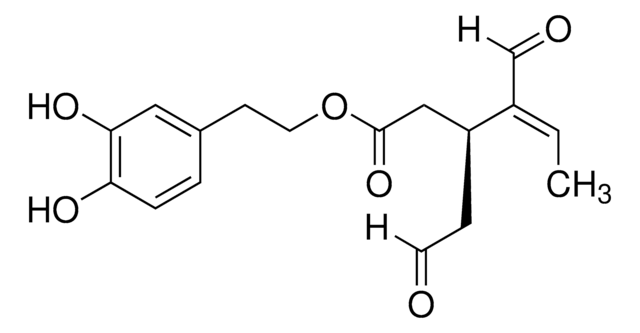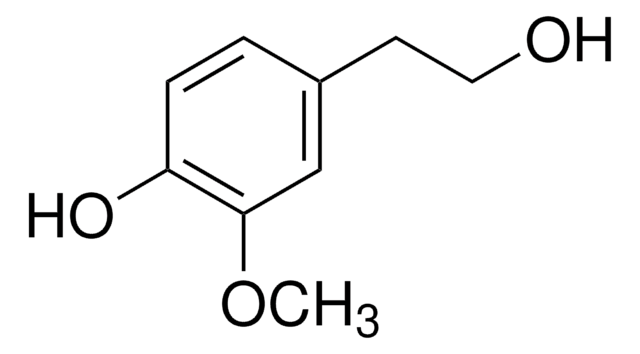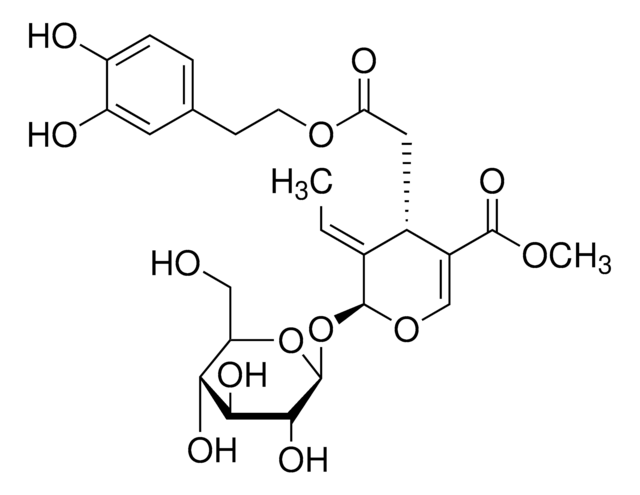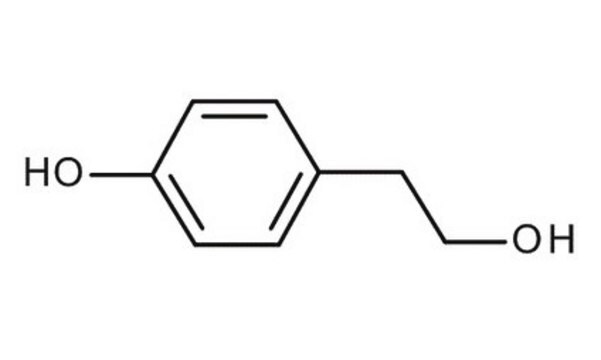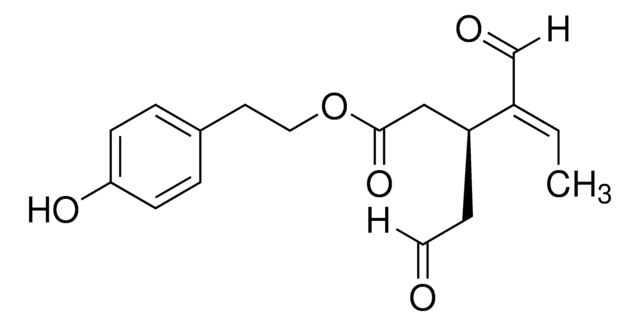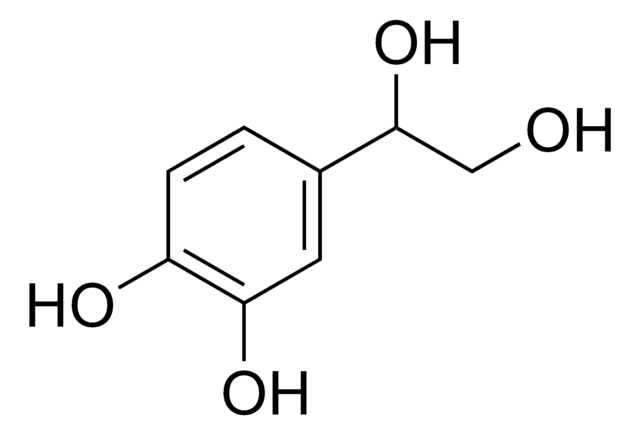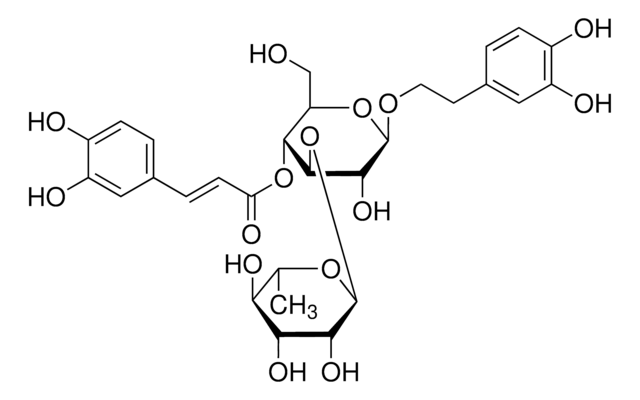H4291
3-Hydroxytyrosol
≥98% (HPLC)
Sinonimo/i:
2-(3,4-Dihydroxyphenyl)ethanol, 3,4-Dihydroxyphenethyl alcohol, DOPET, Homoprotocatechuyl alcohol
About This Item
Saggio
≥98% (HPLC)
Temperatura di conservazione
−20°C
Stringa SMILE
OCCc1ccc(O)c(O)c1
InChI
1S/C8H10O3/c9-4-3-6-1-2-7(10)8(11)5-6/h1-2,5,9-11H,3-4H2
JUUBCHWRXWPFFH-UHFFFAOYSA-N
Cerchi prodotti simili? Visita Guida al confronto tra prodotti
Applicazioni
- Production of 3-Hydroxytyrosol from Glucose by Chromosomally Engineered Escherichia coli by Fed-Batch Cultivation in a Jar Fermenter.: Demonstrates biotechnological production of 3-Hydroxytyrosol using genetically modified E. coli, highlighting scalable methods for synthesizing valuable biochemicals from simple sugars (Koma et al., 2023).
- Green Extraction of Antioxidant Compounds from Olive Tree Leaves Based on Natural Deep Eutectic Solvents.: Investigates eco-friendly extraction methods for recovering 3-Hydroxytyrosol from olive leaves, emphasizing sustainable chemical processes and the high antioxidant potential of the extracts (Mir-Cerdà et al., 2023).
Azioni biochim/fisiol
Prodotti correlati
Avvertenze
Warning
Indicazioni di pericolo
Consigli di prudenza
Classi di pericolo
Acute Tox. 4 Oral
Codice della classe di stoccaggio
10 - Combustible liquids
Classe di pericolosità dell'acqua (WGK)
WGK 1
Punto d’infiammabilità (°F)
Not applicable
Punto d’infiammabilità (°C)
Not applicable
Certificati d'analisi (COA)
Cerca il Certificati d'analisi (COA) digitando il numero di lotto/batch corrispondente. I numeri di lotto o di batch sono stampati sull'etichetta dei prodotti dopo la parola ‘Lotto’ o ‘Batch’.
Possiedi già questo prodotto?
I documenti relativi ai prodotti acquistati recentemente sono disponibili nell’Archivio dei documenti.
I clienti hanno visto anche
Il team dei nostri ricercatori vanta grande esperienza in tutte le aree della ricerca quali Life Science, scienza dei materiali, sintesi chimica, cromatografia, discipline analitiche, ecc..
Contatta l'Assistenza Tecnica.
